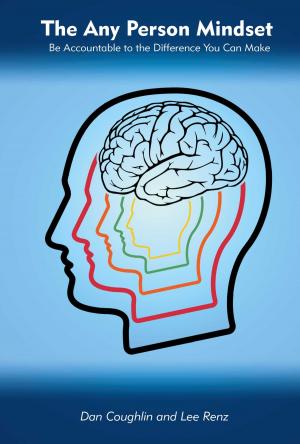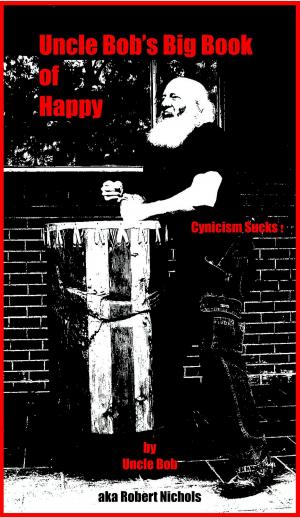| Author: | Donnell Craig | ISBN: | 9781626750326 |
| Publisher: | BookBaby | Publication: | November 2, 2012 |
| Imprint: | Language: | English |
| Author: | Donnell Craig |
| ISBN: | 9781626750326 |
| Publisher: | BookBaby |
| Publication: | November 2, 2012 |
| Imprint: | |
| Language: | English |
The African American saga in the land of Uncle Sam is an empirical tale of drama replete with conflict and struggle, at the physical, spiritual, and psychological level, as individually and collectively experienced by Africans in America. Preoccupations and concern with identity issues have been a driving force in spurring many black American leaders and intellectuals, the like of Dr. W.E.B. Dubois, to espouse the uniqueness of the American Negro’s dual identity and inheritance, an inescapable product of their African ancestral heritage and American experience. Addressing this psychological and genetic dualism encoded within the African-American, Dr. Dubois once asserted and concluded that it was indeed possible to “wear both hats”: that of Africa, and that of America. However, coming to terms with this double consciousness requires a gradual process of unlearning and deconstruction that engages the individual self. In the beginning pages of this book, the author sets the tone to what appears to be a journey of self-discovery, once he sets foot in Africa. He (Lit space E-the protagonist) goes through great length depicting the inner psychological struggle raging from within himself as his prior mis-education and mental programming that schools and the western social media had deceitfully projected, collides headlong with the reality of Africa, a continent on uphill mobility. Paradoxically, unlike the Tarzan image depicted by Hollywood, Lit gradually comes to grips with the depth of western deception as his African adventure unfolds. This progressive realization of the misrepresentation of the true African identity and heritage was central to the internal conflict that was raging in the innermost confines of the narrator’s mind. He was now an eye-witness and “real-time” observer of the beauty and majesty of the Motherland. Undoubtedly, this mental re-examination was not only an eye opener, but more importantly, it helped expose lies and dispel misconceptions and the distorted image about the Continent as a waste land still entrenched in backwardness. This critical introspection, inevitably, helped resurrect and empower the dormant spirit of Kunta the warrior within Lit, the protagonist, by setting the records straight and truth back into perspective. To the narrator, as to many African American brethren, ‘Roots” of Alex Haley is the most popular near-authentic historical source of reference that documents the African American journey from Freedom (in homeland Africa), through the Middle passage (conditioning), to servitude/bondage and slavery in America. This progressive psychological transformation from Kunta (Warrior spirit) to Toby (Submission) in Haley’s novel, was skillfully used by the author to elaborate a poignant and introspective fictional narrative that delves deep into the psychological recesses of the narrator’s passionate quest for redeeming answers and retribution. Perhaps, the idea of retribution or, at least, re-establishing the truth, has the outcome of vindicating the un-human, age-long mistreatment slaves suffered at the hands of slave industry perpetrators and white supremacy. In the parallel world of the author’s imagination, historical flashbacks, bringing back to life biblical figures such as Pharaoh of Egypt and Judas serving punishment for their crimes, interacting with current postmodern institutionalized programs such as public aid and food stamps designed to perpetrate bondage, oppression and keep the Black family divided, are juxtaposed. By the same token, powerful images and iconic figures, the likes of Kwame Ture, Malcolm X, Dr. King, Mohammed Ali, Marcus Garvey to name only a few, postured as crusaders against the white supremacist establishment and represented signs of Kunta on the rise. These icons had indeed transcended the Toby spirit; a brainwashing condition that afflicts most Negro Americans, and have fully assumed and championed Kunta. It is precisely the very resurrection and reconnection with this African spirit that fueled the author’s desire and determination to deepen his search for the truth as he proceeded to uncover the inconsistencies and misconceptions entrenched in his American mis-education. The protagonist’s pilgrimage to the slave house on Goree Island set the stage for the gist of the narrative and marked a turning point in the story by elevating the author to new levels of consciousness and awareness.
The African American saga in the land of Uncle Sam is an empirical tale of drama replete with conflict and struggle, at the physical, spiritual, and psychological level, as individually and collectively experienced by Africans in America. Preoccupations and concern with identity issues have been a driving force in spurring many black American leaders and intellectuals, the like of Dr. W.E.B. Dubois, to espouse the uniqueness of the American Negro’s dual identity and inheritance, an inescapable product of their African ancestral heritage and American experience. Addressing this psychological and genetic dualism encoded within the African-American, Dr. Dubois once asserted and concluded that it was indeed possible to “wear both hats”: that of Africa, and that of America. However, coming to terms with this double consciousness requires a gradual process of unlearning and deconstruction that engages the individual self. In the beginning pages of this book, the author sets the tone to what appears to be a journey of self-discovery, once he sets foot in Africa. He (Lit space E-the protagonist) goes through great length depicting the inner psychological struggle raging from within himself as his prior mis-education and mental programming that schools and the western social media had deceitfully projected, collides headlong with the reality of Africa, a continent on uphill mobility. Paradoxically, unlike the Tarzan image depicted by Hollywood, Lit gradually comes to grips with the depth of western deception as his African adventure unfolds. This progressive realization of the misrepresentation of the true African identity and heritage was central to the internal conflict that was raging in the innermost confines of the narrator’s mind. He was now an eye-witness and “real-time” observer of the beauty and majesty of the Motherland. Undoubtedly, this mental re-examination was not only an eye opener, but more importantly, it helped expose lies and dispel misconceptions and the distorted image about the Continent as a waste land still entrenched in backwardness. This critical introspection, inevitably, helped resurrect and empower the dormant spirit of Kunta the warrior within Lit, the protagonist, by setting the records straight and truth back into perspective. To the narrator, as to many African American brethren, ‘Roots” of Alex Haley is the most popular near-authentic historical source of reference that documents the African American journey from Freedom (in homeland Africa), through the Middle passage (conditioning), to servitude/bondage and slavery in America. This progressive psychological transformation from Kunta (Warrior spirit) to Toby (Submission) in Haley’s novel, was skillfully used by the author to elaborate a poignant and introspective fictional narrative that delves deep into the psychological recesses of the narrator’s passionate quest for redeeming answers and retribution. Perhaps, the idea of retribution or, at least, re-establishing the truth, has the outcome of vindicating the un-human, age-long mistreatment slaves suffered at the hands of slave industry perpetrators and white supremacy. In the parallel world of the author’s imagination, historical flashbacks, bringing back to life biblical figures such as Pharaoh of Egypt and Judas serving punishment for their crimes, interacting with current postmodern institutionalized programs such as public aid and food stamps designed to perpetrate bondage, oppression and keep the Black family divided, are juxtaposed. By the same token, powerful images and iconic figures, the likes of Kwame Ture, Malcolm X, Dr. King, Mohammed Ali, Marcus Garvey to name only a few, postured as crusaders against the white supremacist establishment and represented signs of Kunta on the rise. These icons had indeed transcended the Toby spirit; a brainwashing condition that afflicts most Negro Americans, and have fully assumed and championed Kunta. It is precisely the very resurrection and reconnection with this African spirit that fueled the author’s desire and determination to deepen his search for the truth as he proceeded to uncover the inconsistencies and misconceptions entrenched in his American mis-education. The protagonist’s pilgrimage to the slave house on Goree Island set the stage for the gist of the narrative and marked a turning point in the story by elevating the author to new levels of consciousness and awareness.















